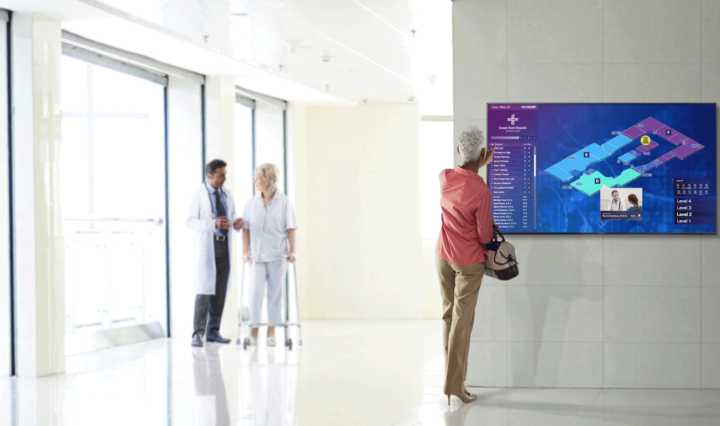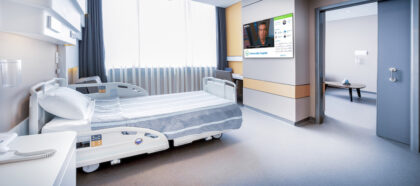This News Insight from Samsung Networks explores the business value of hospital Wi-Fi. Learn how nursing teams can take advantage of hospital Wi-Fi and enhance clinical communication with unlocked phones. —Samsung Insights editorial team
The Internet and Wi-Fi have helped to connect the world, increase productivity and break through location and language barriers, and Wi-Fi in hospitals works in much the same way. The sheer size of a hospital creates numerous communication challenges, and the benefits that Wi-Fi provides immediately help with them and will create more opportunities for the future as technology improves. With both start-ups and big businesses getting behind the trend, Wi-Fi and the IoT industry are growing exponentially year on year when it comes to health technology.
- Location, location, location
Wi-Fi really tackles the challenges of location and communication when it comes to patient care. The ability to connect with a patient from a remote location increases the productivity of medical staff and ensures that patients get the care that they need when they need it, not when the specialist can make it to see them. The benefits of telehealth are endless – such as allowing video conferences between specialists from multiple locations to decide the best course of action, physical therapy through digital monitoring instruments, or even robotic surgery through remote access. Hospitals see the benefit of this, and around 78% now allow some doctors to use personal Wi-Fi devices at the point of care.
Revolutionize the Patient Experience
See how innovative hospitals are using digital technology to keep patients happy and healthy. Download Now
- All about the access
Wi-Fi also gives medical professionals the ability to track patient data in real time in a way that traditional software never has. It’s much easier for hospitals to create processes for delivering medical information, such as lab results, through Wi-Fi connected devices – it’s seamless and quick. Around 88% of all hospitals globally are now using mobile electronic health record applications. Add to this the ability for medical professionals to access huge numbers of medical databases at the click of a button, and it’s easy to see why patient care can be improved with the smart use of Wi-Fi.
- Not just about the medicine
Interestingly, hospitals are getting behind this shift in technology and are looking at implementing it beyond the realm of their medical staff. This marks a change in attitude toward much more patient-centric care than we’ve ever seen before. Hospitals are very much aware of the benefits Wi-Fi can bring to their staff and therefore patients, but now they are also turning their attention to ensure that patients and visitors also have the level of access and care that comes with Wi-Fi technology, particularly to decrease the negative feelings that come with isolation and the lack of entertainment in hospitals.
Effective use of Wi-Fi in hospitals can allow medical professionals and patients to communicate in a way that is unprecedented. It allows medical professionals to track data from incredibly sophisticated equipment such as MRI scans and other monitoring devices in real time, providing patients with the most up-to-date and relevant care possible. The truly exciting thing about Wi-Fi technology in hospitals is the scope it holds for technology that has yet to be created. We are seeing this more and more with the improvements in robotic technology, and with the industry booming, it’s much more is likely to come in the coming years.
Learn more about how healthcare technology solutions can enhance caregiver efficiency and improve the patient experience.









